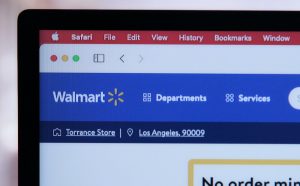Walmart recently became the latest major drug industry player to pledge support to state, local, and tribal governments still struggling with an epidemic of overdose deaths, proposing a $3.1 billion settlement over the negative effects of prescription opioids that were sold at its pharmacies.
Over the past two decades, opioids in general have been linked to more than 500,000 deaths in the U.S. alone.
On November 2, the two largest U.S. pharmacy chains, CVS Health and Walgreen Company (doing business as Walgreens), agreed to similar settlement proposals. Each will pay about $5 billion.
Settlements have already been reached with most of the drugmakers that produced the majority of opioids as well as the biggest drug distribution companies.
With the opioid crisis continuing unabated, the focus now turns to how the settlement money, which now amounts to more than $50 billion, will be used. As prescription drugs have become a relatively small portion of the epidemic, it remains to be seen whether the money will actually help reduce overdose deaths.
Most fatal opioid overdoses in the 2000s involved prescription drugs such as OxyContin and its generic, oxycodone. However, many people addicted to those prescription drugs turned to more deadly heroin after governments, doctors, and companies took steps to make prescriptions harder to obtain.
Opioid deaths have soared to record levels in recent years, an increase that is perhaps partially attributable to the COVID-19 pandemic. In 2019, there were an estimated 49, 860 total opioid deaths in the U.S. That number rose to 70,029 in 2020, and then to 80,816 in 2021, according to the CDC. Illegally produced versions of the powerful lab-made drug fentanyl accounted for most of those deaths.
Walmart does not admit liability with the settlement. Instead, it said in a statement that it “strongly disputes” allegations that its pharmacies improperly filled opioid prescriptions.
The settlement amount represents about 2% of Walmart’s currently quarterly revenue, and most of it would be paid over the next year if it is finalized.
When asked for comment, the company said in a statement: “Walmart believes the settlement framework is in the best interest of all parties and will provide significant aid to communities across the country in the fight against the opioid crisis, with aid reaching state and local governments faster than any other nationwide opioid settlement to date.”
New York AG Letitia James said in a release that the company would, in addition to the settlement payment, also have to comply with oversight measures, prevent fraudulent prescriptions, and flag suspicious ones.
Although the deals come as the result of negotiations with a group of state attorneys general, they are not yet final. The CVS and Walgreens deals would first have to be accepted by a critical mass of state and local governments, while Walmart’s deal would have to be approved by 43 states by December 15. Local governments could sign on by March 31, 2023. The allocation each state receives depends partly on how many local governments sign on.






















